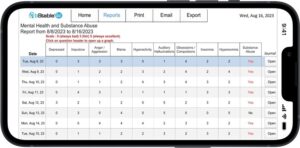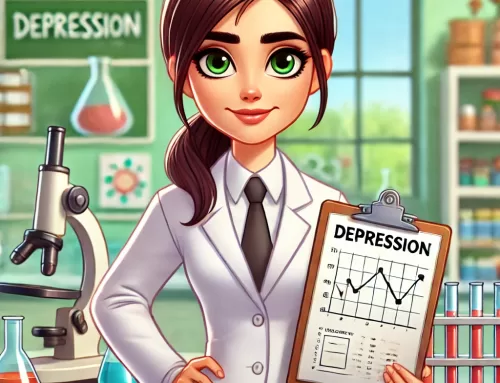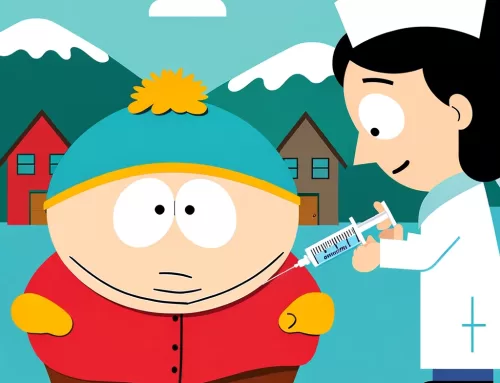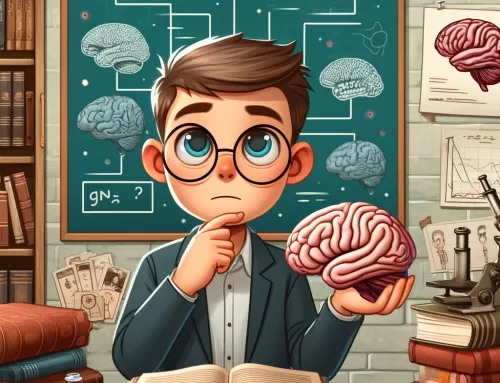bStable helps students manage their mental health from their iPhone, iPad, Mac, or PC.
Contact us at: [email protected] to learn more.
 In the Fall 2021 National College Health Assessment, about 30% of college student respondents said anxiety negatively affected their academic performance. Furthermore, just over 1 in 5 students reported having been diagnosed with depression by a healthcare professional.
In the Fall 2021 National College Health Assessment, about 30% of college student respondents said anxiety negatively affected their academic performance. Furthermore, just over 1 in 5 students reported having been diagnosed with depression by a healthcare professional.
Mood disturbances represent just some of the mental health conditions. Other common challenges include anxiety, suicidal ideation, eating disorders, and substance misuse.

bStable Go! mental health and substance abuse report on an iPhone.
Depression
Depression is a mood disorder that involves persistent feelings of sadness, hopelessness, and loss of interest in previously enjoyable activities. People going through a depressive episode may experience mood swings, sleep disturbances, appetite changes, and headaches and/or body pains with no apparent physical cause.
In the 2021 Healthy Minds Study, 22% of college students screened positive for major depression, and 41% screened positive for depression overall. This makes depression one of the most common mental health conditions among U.S. college students.
Symptoms of Depression
Symptoms of depression can vary depending on the person. The way one person exhibits signs of depression is not necessarily the same way symptoms may emerge in someone else.
According to the American Psychological Association, symptoms of depression can include:
- Changes in sleep habits and/or appetite
- Feelings of sadness, hopelessness, and/or powerlessness
- Changes in social behavior, such as withdrawing from others and isolating oneself
- Increased pessimism (e.g., seeing the glass as half empty)
- Trouble concentrating or paying attention
- Difficulty comprehending and completing tasks in school or at work
Displaying some of these symptoms does not necessarily mean you’re depressed. However, if you begin to experience these symptoms with some regularity, you should consider seeking professional help.
Signs That Someone May Have Depression
Everyone has off days when they feel overwhelmed or down about life. But when these days become weeks and simply getting out of bed becomes a struggle, such symptoms become cause for concern.
Here are some signs of depression to look for in peers, friends, and loved ones:
- They’re not enjoying activities they once loved
- They no longer attend classes or social outings
- They’re experiencing extreme anger or sadness over a relationship in their life
- They react negatively or with apathy to most things
- They often talk about death or suicide
Words of encouragement can show that person you’re a source of support. However, avoid telling someone to “cheer up” or “snap out of it.” Many people experiencing depression are aware of their condition, and telling them to get over it is not helpful.
If you believe someone you know is at risk, gently encourage them to seek help and offer to accompany them to a student health center or doctor’s appointment. Although talking through their challenges with you may be helpful, understand that this is not a substitute for professional treatment.
Signs That You May Have Depression
If you think you may have depression, ask yourself the following questions:
- Have you experienced extreme sadness or hopelessness?
- Does your family have a history of depression?
- Have you turned to heavy drinking or drug use to relieve feelings of hopelessness?
- Have you experienced invasive thoughts of death or suicide?
If you answered yes to any of the above questions, consider making an appointment with your primary healthcare provider or with someone at your student health center for a mental health assessment.
Resources for Depression
The following organizations are dedicated to providing resources and assistance to those living with depression:
- American College Health Association
- Anxiety & Depression Association of America
- National Institute of Mental Health
- The Jed Foundation
- ULifeline
Anxiety
Most college students experience anxiety from time to time. However, mounting or ongoing feelings of worry, tension, and panic can interfere with day-to-day life. When your daily life is disrupted, anxiety becomes a medical condition that needs treatment.
In a 2016 Pennsylvania State University study, 61% of survey respondents identified anxiety as a leading student mental health condition. And in the aforementioned Healthy Minds Study, 1 in 3 students screened positive for an anxiety disorder.
Below are some of the most common types of anxiety disorders:
- Generalized Anxiety Disorder (GAD): This condition involves constant, severe anxiety that interferes with day-to-day activities.
- Obsessive-Compulsive Disorder (OCD): People with OCD experience intrusive and unreasonable thoughts, fears, and obsessions that lead to repetitive behaviors and compulsions.
- Panic Disorder: This condition is characterized by constant fearfulness and frequent, sudden attacks of terror and panic.
- Post-Traumatic Stress Disorder (PTSD): PTSD usually develops after someone experiences or witnesses a traumatic event. However, individuals can also have trauma without suffering a major catastrophic event.
- Social Anxiety Disorder: This mental health condition manifests as irrational anxiety, fear, self-consciousness, and embarrassment in everyday social interactions.
Symptoms of Anxiety
Symptoms of an anxiety disorder are often mistaken for everyday stress or written off as worrying too much.
Depending on how your body responds to increased levels of certain chemicals, panic attacks may be mistaken for a physical ailment, such as a heart attack or tension headache.
Common symptoms of anxiety can include:
- Feelings of stress, restlessness, apprehension, or fearfulness
- Irritability
- Trouble concentrating
- Excessive sweating and dizziness
- Shortness of breath
- Muscle pain and tension
- Headaches
- Frequent upset stomach or diarrhea
The exact causes of anxiety aren’t fully understood but may include a combination of genetics, naturally occurring brain chemicals, life experiences, and stress.
Signs That Someone May Have Anxiety
Brief, occasional feelings of anxiety or anxiety-driven behaviors do not automatically indicate a mental health condition. If, however, anxious feelings persist, interfere with your daily life or functioning, or begin to manifest as obsessive behaviors with an overwhelming sense of fear, it may be time to seek help.
Someone you know may have an anxiety disorder if they display one or more of the following behaviors:
- Having difficulty developing healthy coping habits after experiencing a traumatic event
- Appearing to live in constant fear of failure
- Extreme discomfort in social settings
- Trouble concentrating or seeming to have a blank mind
- Appearing plagued with guilt or stress
- Visible panic attacks
Refrain from criticizing or belittling the severity of someone’s symptoms and encourage them to try coping strategies that avoid causing further anxiety. You might also encourage your friend or peer to visit campus mental health services so they can talk with a professional.
Signs That You May Have Anxiety
If you suspect you may have an anxiety disorder, here are some questions to ask yourself:
- Are you experiencing anxious or worrisome thoughts on a daily basis?
- Are you plagued by fears others may find unfounded or irrational?
- Do you avoid everyday social activities because they cause you anxiety?
- Do you experience sudden, heart-pounding panic attacks?
- Is your anxiety interfering with your school work, job, and/or relationships?
If you answered yes to any of the above questions, consider visiting your primary healthcare provider or someone at your student health center for a mental health assessment.
Resources for Anxiety
The following organizations are excellent resources for students with anxiety disorders:
- American Psychological Association
- Anxiety & Depression Association of America
- Anxiety Resource Center
- BeyondOCD.org
- Social Anxiety Association
3. Suicidal Ideation and Intent
Suicidal ideation is defined as a pattern of thinking about or planning one’s own death by one’s own hand. Generally, mental health professionals consider overwhelming or highly detailed suicidal thoughts a mental health emergency.
A 2018 study by Harvard Medical School researchers found that 1 in 5 U.S. college students experienced thoughts of suicide. More recently, the 2021 Healthy Minds Study reported that 5% of student respondents had planned to commit suicide (without making an attempt) in the past year.
Signs of Suicidal Ideation in Others
Many students experience stress, frustration, and doubt, but sometimes those thoughts gain an intense momentum that brings students to a place where they may seriously consider ending their lives.
Signs of suicidal ideation differ from person to person. According to ADAA, common warning signs can appear in a person’s speech, mood, and/or behavior. These include:
- Speech: People considering suicide may talk about feeling trapped, feeling as if they’re a burden to others, feeling as if they have no reason to go on, and/or wanting to end their lives.
- Mood: Signs of suicidal ideation and intent in someone can manifest in a variety of moods, including anxiety, irritability, loss of interest in activities they enjoyed previously, humiliation, rage, and depression.
- Behavior: Those considering suicide may exhibit specific behaviors, including giving away prized possessions, withdrawing from friends and family, inexplicably visiting people to tell them goodbye, and searching online for information about how to commit suicide. They may also sleep poorly or too often, behave recklessly, act aggressively, and/or increase their use of drugs and alcohol.
If you notice any of the behaviors listed above in a classmate, friend, or family member, it’s important to talk to them about your concerns as soon as possible. They could be in a fragile state, so make sure to approach them with patience and kindness.
In addition to encouraging them to see a mental health professional, you can and should give them the tools to help themselves. Advise them to save the National Suicide Prevention Lifeline phone number — 988 or 1-800-273-8255 — in their phone. (And save this in your phone, as well.)
If you’re unsure how to approach someone who may be experiencing suicidal ideation, you can consult online suicide prevention programs, like Crisis Connections, for advice.
Signs of Suicidal Ideation in Yourself
Suicidal thoughts often stem from a preexisting mental health condition. Depression, which can cause distorted thinking, sometimes leads to suicidal thoughts. Feeling utterly overwhelmed and helpless due to anxiety can also result in suicidal thoughts.
If you’re thinking about ending your life, tell a friend or loved one. You should also contact your mental health center as soon as possible.
Remember that crisis services are available. Don’t hesitate to call the National Suicide Prevention Lifeline at 988 or 1-800-273-8255 if you’re experiencing peristent thoughts of suicide.
Suicide is a preventable tragedy. There are people out there who care and want to help you.
Suicide Prevention Resources
Many suicide prevention resources are available online and at campus health centers. Here are some organizations that specialize in mental health and suicide prevention:
- Active Minds
- American Foundation for Suicide Prevention
- National Alliance on Mental Illness
- National Suicide Prevention Lifeline
- The Trevor Project
Eating Disorders
Eating disorders cover a variety of conditions marked by major irregularities in eating habits and an intense preoccupation with one’s body image or shape. These disorders can involve both food deprivation and binge eating, which may be followed by purging.
Data shows that around 11-17% of female college students and 4% of male college students in the U.S. screen positive for clinical eating disorder symptoms.
Here are some examples of common eating disorders:
- Anorexia Nervosa: Characterized by an unhealthy fixation on thinness, a distorted body image, and fears of gaining weight, this disorder commonly results in emaciation and has one of the highest mortality rates among mental health conditions.
- Bulimia Nervosa: Bulimia nervosa involves recurrent and frequent episodes of eating unusually large amounts of food, followed by behavior that compensates for binging, like purging, fasting, or overexercising.
- Binge Eating Disorder: Binge eating disorder is characterized by constant cravings that occur any time of day and result in overeating. This disorder is often associated with poor body image and low self-esteem.
Symptoms of an Eating Disorder
The signs and symptoms of eating disorders can vary significantly. Many depend on the mental state of the individual with the disorder.
However, there are several red flags that are common factors for anorexia, bulimia, and binging, such as the following:
- Distorted or poor body image
- Excessive exercise
- Irregular heartbeat
- Dehydration
- Feeling like your eating is out of control
- Fear of eating in public
- Constantly making excuses for eating habits
Eating disorders can be life-threatening and contribute to serious health issues if not treated properly, such as kidney failure, heart problems, stunted growth, loss of menstruation, and failure of the reproductive system.
Signs That Someone May Have an Eating Disorder
We all have days when our self-image isn’t at its best. Remember that experiencing a few negative episodes doesn’t necessarily mean you or someone has an eating disorder.
Nevertheless, when random complaints about weight become all a friend or loved one can focus on, or if you notice they’ve started skipping meals or binging on junk food and then feeling guilty afterward, it may be time to act.
Here are some signs to look for when you suspect someone you know has an eating disorder:
- Are they skipping meals or only eating small portions of food?
- Are they suddenly uninterested in foods they once loved?
- Are they limiting their meals to foods very low in calories?
- Are they taking diet pills excessively or medication that suppresses hunger, such as Adderall or Ritalin?
- Do they disappear suddenly to the restroom after meals?
- Do their teeth appear noticeably stained?
- Are they using mints after trips to the bathroom or perfume to mask the smell of vomit?
- Do they appear preoccupied with their body, appearance, and/or weight?
- Do they exercise excessively or have trouble taking rest days from exercise?
If you answered yes to any of these questions, your peer, friend, or loved one could have an eating disorder. If you need help approaching them about your concerns, consult the National Eating Disorders Association for advice.
Signs That You May Have an Eating Disorder
Worried you may have or be developing an eating disorder? Here are some questions to ask yourself:
- Do you refuse to eat food or skip meals?
- Do you fear eating out in public with others?
- Do you count calories out of a need for control?
- Do you follow strict eating habits that you feel guilty and ashamed for breaking?
- Are you obsessed or dissatisfied with your weight or body shape?
- Do you find yourself eating large amounts of food and then purging, making yourself vomit, or feeling like you have to do something (e.g., exercise) to compensate for the food you just ate?
- Have you noticed excessive hair growth on your arms and face or the loss of your period?
If you answered yes to any of these questions, seek treatment. Eating disorders can become life-threatening, and it’s important you receive help as soon as possible.
Eating Disorder Resources
If you need guidance to help a friend or yourself through an eating disorder, or if you want to understand more about eating disorders in general, these resources are a good place to start:
- Academy for Eating Disorders
- American College Health Association
- Eating Disorder Hope
- National Association of Anorexia Nervosa and Associated Disorders
- National Eating Disorders Association
5. Substance Misuse
College students frequently use alcohol and recreational drugs, which can become problematic.
Substance misuse describes a tangible pattern of physical and/or psychological dependence on one or more substances. This condition typically entails strong cravings and indulgence in substance misuse, despite knowing the risks and harms of this behavior.
According to Addiction Center, about one-third of U.S. college students report symptoms of alcohol misuse. What’s more, a 2018 survey from the National Institute on Drug Abuse found that 15% of male college students and 9% of female college students misused Adderall, a drug commonly used to treat ADHD.
College students have also been found to misuse drugs like marijuana, ecstasy, cocaine, and prescription painkillers at high rates.
Symptoms of Substance Misuse
Many students who use alcohol and drugs in college do not develop an addiction. However, they can still feel the side effects of withdrawal or prolonged use of these substances.
Here are some of the most common symptoms of substance misuse:
- Slurred speech, bloodshot eyes, or impaired coordination
- Fear, anxiety, or paranoia for no apparent reason
- Prone to suspicious behaviors (e.g., frequently getting into fights or getting into trouble with the law)
- A sudden need for money or a financial crisis
- High tolerance for alcohol and/or drug use (in other words, the person may need to use more and more of a substance to obtain the same effects)
- Deterioration of physical appearance, such as weight loss or gain, and changes in personal grooming habits
- A sudden change in friends, activities, or hobbies
If you’re experiencing one or more of these symptoms, you may be at risk of developing a substance use disorder. Genetics can contribute to your likelihood of developing an addiction, especially if your family has a history of alcohol or drug misuse.
Signs That Someone May Have a Substance Use Disorder
It’s not always clear when alcohol or drug use has turned from recreational to habitual. Friends and loved ones who don’t want to admit they have a problem may use tactics that evade and undermine your concerns.
If you suspect someone may have a substance use disorder, ask yourself the following questions:
- Do they drink to relieve stress or suppress issues?
- Has their drinking or drug use interfered with their interpersonal relationships?
- Have they withdrawn from activities or school work?
- Does their life revolve around drug or alcohol use?
- Has their personality changed?
- Have you noticed an unusual smell on their breath, body, or clothing?
Those who misuse drugs or alcohol often conceal their symptoms or downplay their addiction. As such, it’s important that you express your concerns as soon as you notice the warning signs.
When the person is sober, tell them you’ve noticed their excessive drug or alcohol use. Emphasize the positive sober behaviors you admire and the destructive behaviors they display when drunk or high that concern you.
Refrain from being accusatory or judgmental, as this might cause them to withdraw and further ignore their issues. Offer to go with them to seek treatment at your student health center and help them find resources to support them.
Signs That You May Have a Substance Use Disorder
Ask yourself the following questions if you think you may be exhibiting signs of substance misuse:
- Do you feel uncomfortable when drugs or alcohol are not available?
- Do you drink heavily when you’re disappointed or sad?
- Have you ever been unable to remember part of the previous evening, even though your friends say you didn’t pass out?
- Has a friend or family member expressed concern about your alcohol or drug use?
- Have any of your blood relatives ever had an addiction to drugs or alcohol?
- Do you struggle to decrease your drug and alcohol use?
If you answered yes to any of these questions, make an appointment to see your healthcare provider right away. Substance misuse should be taken seriously and treated under the guidance of a professional.
Substance Misuse Resources
The following resources can teach you more about the signs and causes of substance misuse, as well as how to get help for yourself or someone you know:
- Alcoholics Anonymous
- Narcotics Anonymous
- National Institute on Drug Abuse
- Partnership to End Addiction
- Substance Abuse and Mental Health Services Administration
Special thanks to our friends at: https://www.bestcolleges.com for assembling this content!




